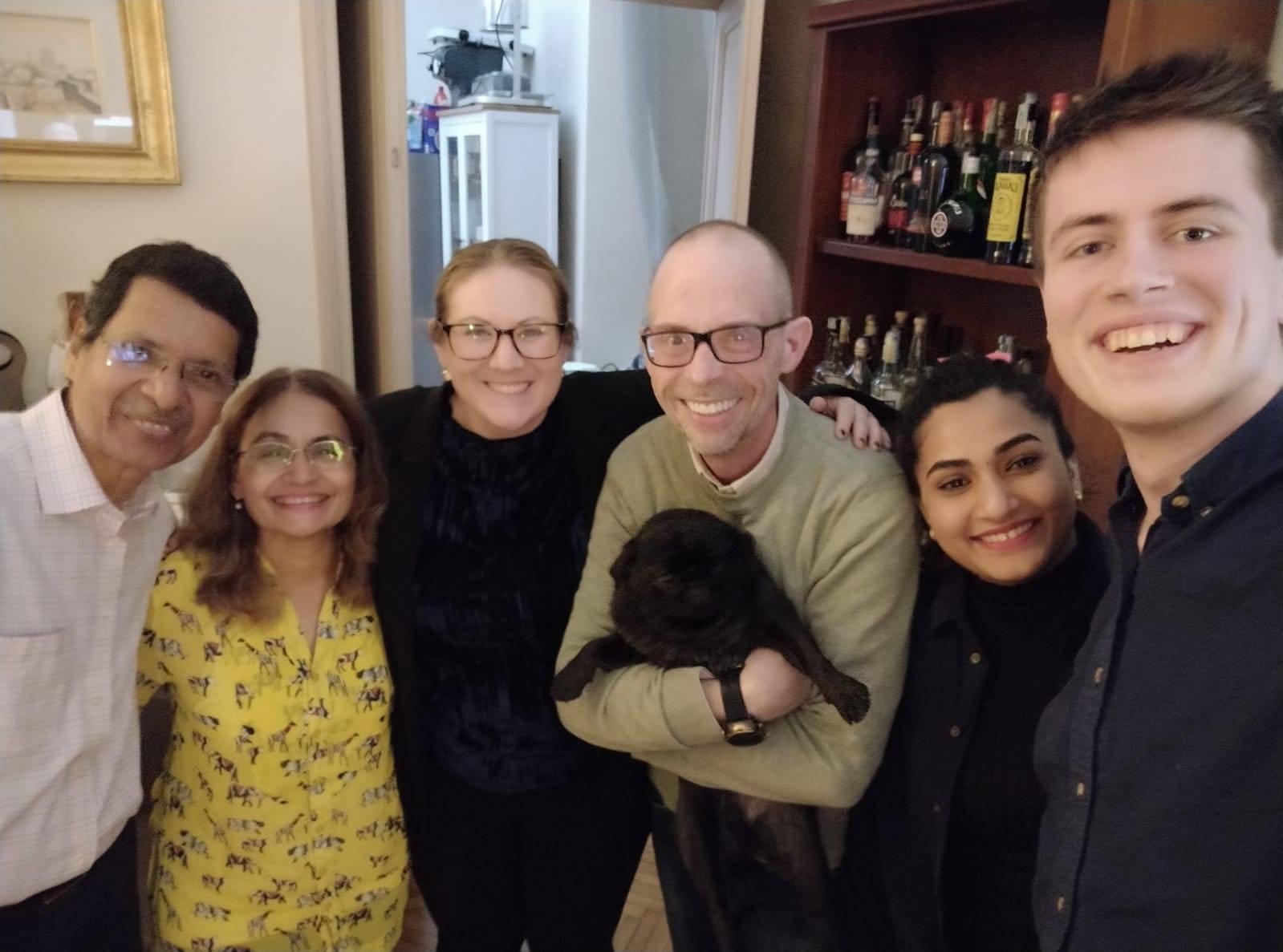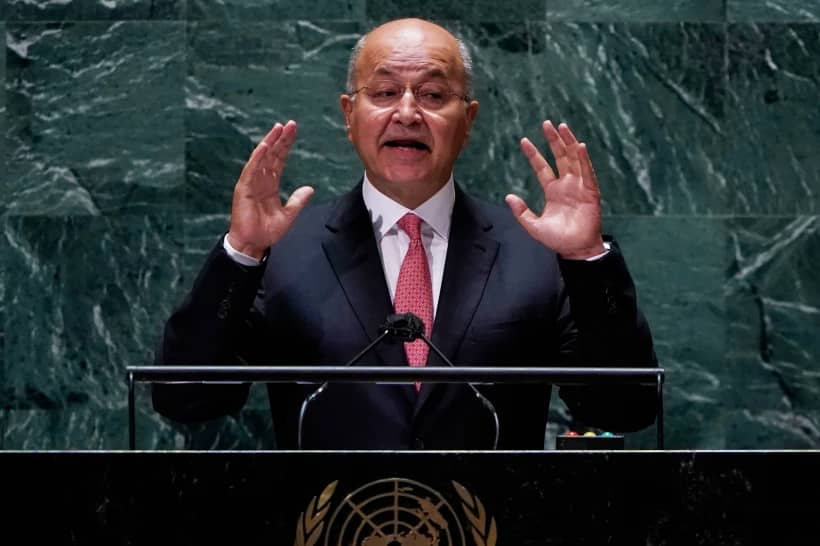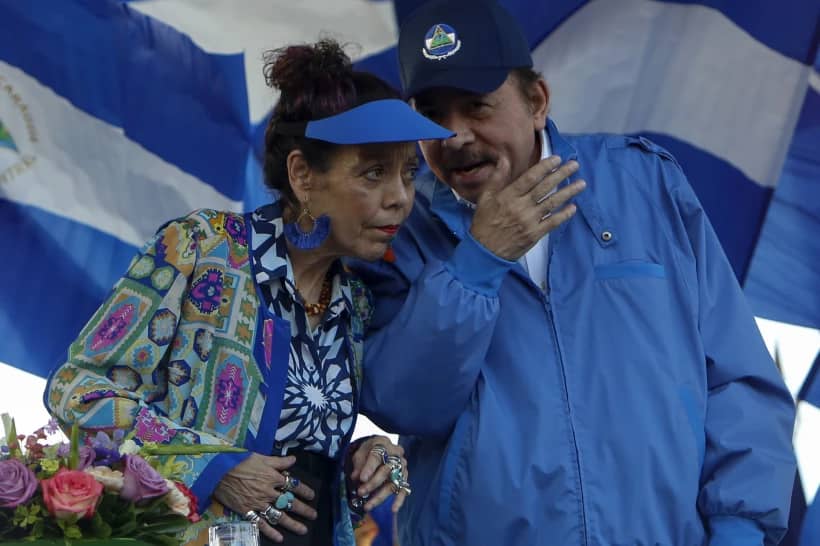NEW YORK – Ahead of the EU-U.S. summit, Catholic bishops are urging government leaders to work together to help the world through the COVID-19 pandemic and solve other pressing issues worldwide.
“The Catholic Church looks to the EU-U.S. Summit with hope that it may be a stepping-stone for a renewed transatlantic partnership at the service of a people-centered and just recovery from the pandemic and its consequences, intensifying common efforts for a more peaceful world, and strengthening our commitment to a better care for our common home,” said a joint declaration published Tuesday.
Shared Responsibility for the Whole Human Family: A Joint Declaration Towards a Renewed Transatlantic Partnership was signed by Archbishop José Gomez of Los Angeles, president of the United States Conference of Catholic Bishops, and Cardinal Jean-Claude Hollerich of Luxembourg, president of the Commission of the Bishop’s Conferences of the European Union.
The EU-U.S. summit is next week in Brussels. It’s part of the itinerary for President Joe Biden’s first overseas trip as commander-in-chief that also includes the G7 and NATO summits, as well as a U.S.-Russia summit with Russian President Vladimir Putin.
Global vaccination efforts, labor rights, greater assistance to poorer countries, reducing worldwide violence, religious freedom, ensured care for refugees and climate change are among the goals the prelates urged the EU and U.S. leaders work together towards in what they hope will be a “renewed partnership for greater peace, justice and sustainable human development across our Continents and in the world.”
Out of the gate, Gomez and Hollerich noted that freedom, democracy, rights of nations, the rule of law, justice and respect of human life are shared values that have been the foundation between the EU and U.S. And that’s part of what makes them “natural partners in steering multilateral efforts for ‘healing the world that was sick.’”
Suggestions on how to achieve the goals were broken out into three different sections of the declaration: “For a people-centered and just recovery,” “For a more peaceful world,” and “For a better care for our common home.”
In the declaration, Gomez and Hollerich encourage European and U.S. decision makers to accelerate their efforts in getting COVID-19 vaccines to countries still struggling with high transmission rates. They suggest doing in part through the COVAX (COVID-19 Vaccines Global Access) Facility – co-led by the World Health Organization, Coalition for Epidemic Preparedness Innovations (CEPI) and Gavi, the Vaccine Alliance – that works to ensure equitable access to vaccines, especially for the poor and vulnerable.
They also urge that the renewed transatlantic partnership “work to strengthen employment in dignified conditions,” and tackle a “structure of financial sins” that allows offenses like tax evasion, “to ensure that everyone contributes to the common good and to a just recovery.”
On the topic of creating a more peaceful world the prelates encourage the EU and U.S. to be “beacons of trust across the global community.”
“When our decision-makers act in a productive way, they can be more persuasive in convincing other nations to develop their own joint approaches with multilateral institutions at the service of the common good,” they wrote.
Gomez and Hollerich also identified justice, integral human development, respect for fundamental human rights and the care for creation as principles they hope will “guide the transatlantic engagement in the promotion of peaceful resolution of the many violent conflicts and instabilities in the world, including in the Middle East, while making more resources available for multi-stakeholder dialogue, preventive diplomacy, and non-violent action at an early stage.”
Preventing illicit arms trade, promoting proper uses of artificial intelligence and intensifying joint efforts to protect religious freedom worldwide were other issues they urged the country’s leaders to work together towards, along with a commitment to asylum seekers and refugees.
“While urging decision-makers on both sides of the Atlantic to assume their responsibility in making effective the primary right of people to remain in their home country to live in security and dignity, we also with to underscore Pope Francis’ meaningful call to ensure humane and dignified treatment of our sisters and brothers forcibly on the move: welcome, protect, promote and integrate,” Gomez and Hollerich wrote.
The bishops’ final call in the letter was for the transatlantic partnership to address climate change. Doing so, they wrote, is an opportunity to improve general living conditions, health, transport energy and security and create job opportunities.
They also emphasized the importance of “nurturing” the relationship moving forward.
“Even though the transatlantic partnership is based on a solid foundation of common principles and values, it needs to be nurtured continuously to make it even more fruitful and mutually beneficial not only for our citizens, but to also at the service of the whole human family,” Gomez and Hollerich wrote.
Follow John Lavenburg on Twitter: @johnlavenburg













